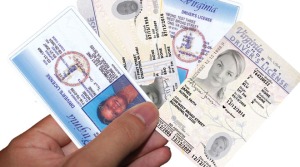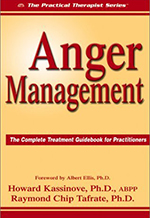California-licensed psychologists renew every 2 years. 36 hours of continuing education (CE) are required for each renewal. 27 hours (75%) are allowed from approved online coursework (independent learning). A course on CA laws and ethics must be taken each renewal. Courses offered by APA-approved providers are accepted.
Mandatory Continuing Education Requirements

Click to view courses!
What is continuing education?
Continuing education means the variety of forms of learning experiences, including, but not limited to, lectures, conferences, seminars, workshops, grand rounds, video conferencing, and distant learning technologies. “Independent learning” means the variety of forms of organized and directed learning experiences that occur when the instructor and the student are not in direct visual or auditory contact. These include, but are not limited to, courses delivered via the Internet, CD-ROM, satellite downlink, correspondence and home study. Up to 27 hours or 75% of continuing education during each renewal cycle can be accrued through independent learning technologies. Independent learning courses must meet all standards of an approved continuing education course.
How much continuing education must be completed?
All licensed psychologists must have completed at least 36 hours of acceptable continuing education each time they renew their license. The only exception to this is for psychologists who are renewing their licenses for the very first time, if the license was issued for a period of less than 24 months.
How many hours of continuing education can be accrued through independent learning?
You can accrue up to 27 hours or 75% of continuing education through independent learning for each renewal cycle. Independent learning means the variety of forms of organized and directed learning experiences that occur when the instructor and the student are not in direct visual or auditory contact. These include, but are not limited to, courses delivered via the Internet, CD-ROM, satellite downlink, correspondence and home study. Independent learning courses must meet all standards of an approved continuing education course.
Who administers the Board’s continuing education program? How do I get a list of approved continuing education providers?
The MCEP Accrediting Agency (MCEPAA) is the approved entity to administer the Board’s continuing education program. They are solely responsible for approving and maintaining a list of qualified providers and courses. To obtain a list of approved courses, contact MCEPAA by phone at 916-286-7980 (Fax: 916-286-7985) or by visiting their web site at http://www.cpapsych.org.
Which courses count toward the continuing education requirements?
The Board of Psychology recognizes and accepts for continuing education courses that are:
- approved by MCEPAA;
- provided by American Psychological Association (APA) approved sponsors;
- Continuing Medical Education (CME) courses specifically applicable and pertinent to the practice of psychology and that are accredited by the California Medical Association (CMA) or the Accreditation Council for Continuing Medical Education (ACCME);
- sponsored by the Academies of the specialty boards of the American Board of Professional Psychology (ABPP).
How do I report hours of continuing education to the Board of Psychology?
You do not need to report hours of continuing education to the Board or to MCEPAA if the course you took was approved by MCEPAA. The hours will be reported directly to MCEPAA by the provider within 45 days of the course. It is recommended that you keep copies of all continuing education certifications.
If the course you took was not approved by MCEPAA (i.e. APA, CMA, ACCME, ABPP, or UCCMEC courses), you are responsible for reporting the course to MCEPAA. To do so, you must complete the MCEP Credit Reporting Form (PDF) which is available on this web site. You can print the form, complete it, and send it, along with the required $35 course reporting fee, to MCEPAA at the address listed on the form. The credit reporting form, copies of CE certificates of completion and the $35 fee, made payable to MCEPAA, must all be sent together to the MCEPAA, in order for your CE record to be properly credited. You are able to report multiple CE courses per credit reporting form submitted, however, the $35 fee must be paid each time the credit report is submitted.
How do I find out how many hours of continuing education I have been credited?
Since all hours of continuing education are reported directly to MCEPAA, they keep track of how many hours have been reported for you. To find out how many hours have been reported, contact MCEPAA by phone at (916) 286-7980 or by e-mail at www.cpapsych.org.
When do the hours of continuing education need to be completed?
The required number of hours of continuing education must be accrued within the 24 months immediately prior to the expiration date of your license. The CE hours must be completed as a condition of the renewal of your license as a psychologist. Extensions cannot be granted. Psychologists who have not completed the minimum CE requirements are not eligible to renew their licenses as a psychologist.
Are there any specific courses that need to be taken as part of my continuing education requirements?
Effective January 19, 2007!
Psychologists now have the flexibility to determine the most effective means to stay abreast of changes in California laws, regulations, ethical standards and standards of practice as they apply to the practice of psychology in California. Training in this area maybe obtained in one or more of the following ways:
- Formal coursework in laws and ethics taken from an accredited educational institution;
- Approved continuing education course in laws and ethics;
- Workshops in laws and ethics;
- Other experience which provide direction and education in laws and ethics including, but not limited to, grand rounds or professional association presentation.
This change in the regulations applies to anyone with a license expiration date of January 31, 2007 or later.
Additionally, all psychologists renewing the psychologist license on or after January 1, 2004 are required to have a CE course in spousal or partner abuse assessment, detection and intervention strategies. The course must include community resources, cultural factors and same gender abuse dynamics. Equivalent courses in spousal or partner abuse assessment, detection and intervention strategies or proof of equivalent teaching or practice may be submitted to the board and, at its discretion may be accepted in satisfaction of this requirement. This is a one-time requirement.
Psychologists renewing their license on or after January 1, 2005 are required to have proof of completion of a three hour CE course in aging and long-term care or show proof to the board of its equivalent in teaching or practicing experience. This is a one-time requirement.
What should I do if I take a continuing education course that seems completely inadequate?
Feedback should be given to the provider of the course using the required course evaluation form. In addition, report the course to MCEPAA so that only top quality providers will continue to be approved.
What happens if I fail to complete the continuing education requirements prior to the expiration date of my license?
If you fail to complete the required hours of continuing education, your license will become invalid for renewal upon expiration. The continued practice of psychology is prohibited until the continuing education is completed and the license is restored to a valid status. If the deficiency is not made up within six months following the license expiration date, you will be subject to disciplinary action and/or citation and fine.
What about CE hours completed prior to the issue date of my psychologist license?
CE credit cannot be granted for CE hours taken prior to the issue date of your psychologist license.
Are there any exemptions from the continuing education requirements?
When applying for renewal, a psychologist may request a waiver from the continuing education requirements if, during the two-year period immediately prior to the expiration date of the license, he or she:
- has been residing in another country or state for at least one year, reasonably preventing completion of the continuing education requirements, or
- has been engaged in active military service, or
- has had a total physical and/or mental disability for at least one year, or
- has had total responsibility for the care of an immediate family member with a total physical and/or mental disability for at least one year
Psychologists with inactive licenses do not need to comply with continuing education mandates until their licenses are reactivated. Additionally, psychologists requiring reasonable accommodations according to the Americans with Disabilities Act may be granted an exemption from the on-site participation requirement and may substitute all or part of their continuing education requirement with an APA or accreditation agency approved distance learning continuing education program.
Does the Board audit licensees to assure compliance with the continuing education requirements?
Yes. The MCEPAA provides reports to the Board that list the names and license numbers of all licensees who are deficient in continuing education credits at license expiration. The Board conducts a 100% audit by contacting each licensee to notify him or her of the deficiency and then continues to monitor the situation until compliance is obtained.
Professional Development Resources is approved by the American Psychological Association (APA) to sponsor continuing education for psychologists. Professional Development Resources maintains responsibility for all programs and content.
Like this:
Like Loading...




















